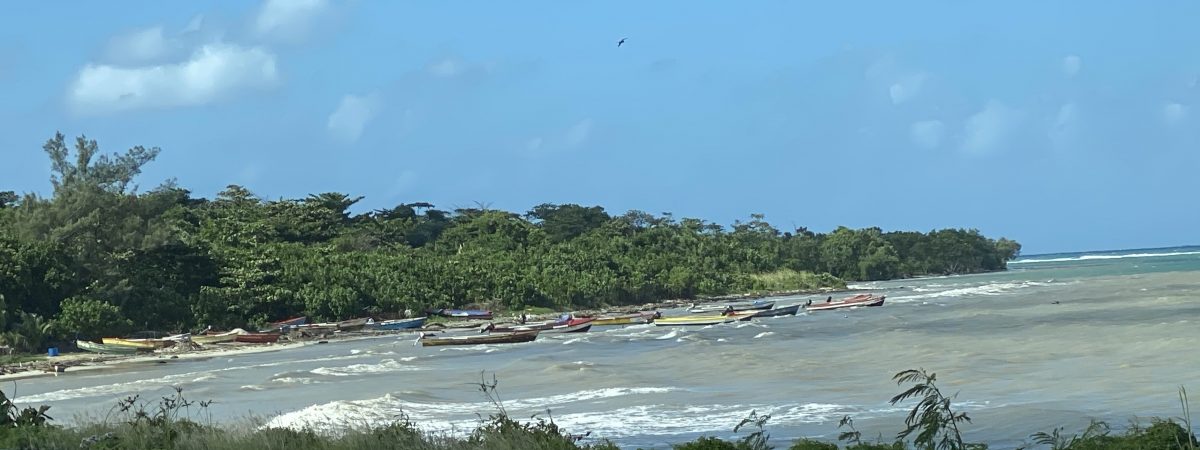I drove from Kingston to Montego Bay, using the new Mount Rosser bypass. The scenery on that route is stunning. But, along the whole route, other things caught my eye. They are all part of Jamaica.
Gas station, at 6am, with men and women talking, and mosquitoes buzzing. The rain the night before had brought our friends out in force. The pump attendant was as pleasant as could be.
Women sweeping streets, before dawn. Often, never seen, and people often complain about how much garbage spoils our environment, not realizing that much is a fresh daily addition.
Buses standing outside Spanish Town hospital. Passengers being sought, and drivers waiting for a full load.
Driving through old Spanish Town is always a treat. Each time I pass its centre, I promise myself that I will do a walking tour. Its history is too important to be pushed off to the sidelines and mired in grime and indifference.

At dawn, as I pass the court, I could be in Latin America.
Bog Walk gorge and Flat Bridge are always fascinating. The severe drought has kept water levels low in the Rio Cobre. I notice how the water course is getting clogged with water hyacinths. They may help to keep waterways clean, but once they take hold they strangle those waterways. Check what has happened in south east Asia.
After the previous night’s heavy rain–100mm or 4 inches–the river was flowing faster.
Jamaicans like to drive fast. As we approach Linstead, a small truck and a minibus ‘get into it’. They don’t want either to pass and race like Rosberg and Hamilton, almost touching. I slow down and let distance increase. Our accidents are often the result of carelessness and recklessness.
We reach the bypass and are greeted by a toll booth attendant training for the full opening. I ask if she will be selling patties next week. She laughed.
The drive is a feast for the eyes if you like to look at mountains in the distance and banana trees closer. I understand why some people just sight see.
Within 15 minutes, we have come off the bypass. No trucks delayed us. We discuss the history of the new road. We thank China. But, we have plenty of winding roads ahead as we head for Chalky Hill. Trucks have lain in wait and come out to slow us, now.
The coast road is really a dull drive by comparison to the country road. Little breaks the boredom besides the quality of the route. We stop at a great breakfast place in Runaway Bay. Salt mackerel, ackee, saltfish, yam, boiled bananas, dumplings boiled and fried? Yes, please. Best value for money.
Moving along the coast the hotels spring up. We pass Duncans, where little houses are growing into mansions. New housing is springing up elsewhere, huge estates. Who will live there?
We reach Spot Valley, and our drive is almost done. New hotels are going up and workers line the road, ready for another day.
Strangely, though, tourists are also walking along the road. No sidewalk. They’re heading to the convention centre. The Taekwondo world cup is on. Later, we’d see some of them licking fingers after eating jerk food.













